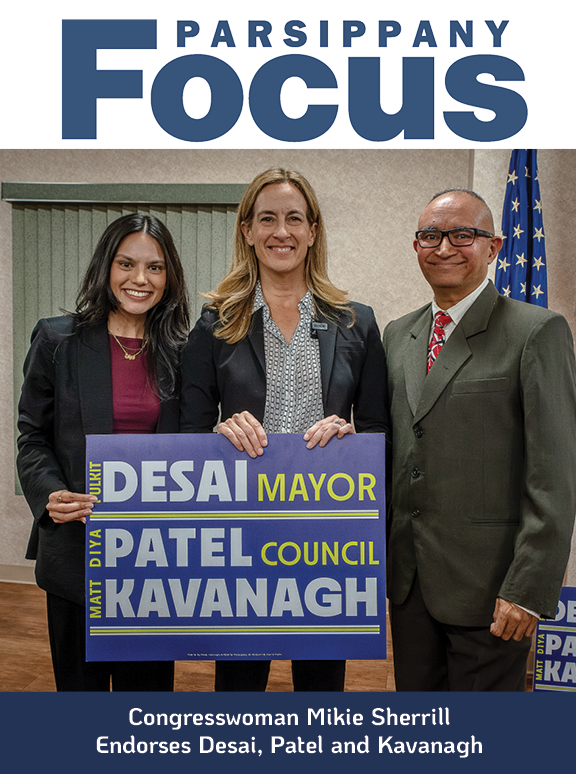PARSIPPANY — Thank you for sharing your feelings and thoughts about the necessary waiver of policy 2312. Again, the Board and administration are not abolishing the policy. It does not benefit our parents, staff, administrators, or students to have a policy on the books for the upcoming 2024-2025 school year when the financial situation which the district faces would make it impossible to adhere to the dictates of the policy. I do not believe that is fair or honest.
Our intention is to revisit policy 2312 next summer to assess available classrooms and classroom space. Presently, our average class size in our elementary schools is 20.51 students per classroom. This is an average; therefore, some classrooms may have more than 20.51, and some classrooms may have less than 20.51.
Our district has been fiscally prudent with our funds, even with a two-percent budget cap each year. Our Interim Business Administrator, Mrs. Robin Tedesco, and her staff have received the Association of School Business Officials’ Certificate of Excellence in Financial Reporting Award.
The sheer fact that year after year, the district has been able to manage staff pay increases, which have been above two percent, in addition to health insurance costs, liability insurance costs, transportation costs, and building maintenance upgrades—all of which have been well above two percent—is a remarkable achievement. Other districts, which have had to cut employee positions, have not been so fortunate!
The district continues to plan for the anticipated student growth expected due to the many new regular building developments and PILOT building developments. In fact, the district has managed to fund, out of our operating revenue, “Phase I” of a six-classroom addition project at Littleton School, while saving for “Phase II” of the project, which will include an additional seven classrooms. These school classroom enhancement construction projects will provide an additional 13 classrooms at Littleton Elementary School.
Again, this is incredibly prudent fiscal management, which is allowing these additional classrooms to be built. At this point, there are no other options other than to expand class size if we experience an influx of students. At this time, we simply do not have available classroom space, the additional workforce required, or the financial ability to support additional teaching and support staff.
Moreover, the BOE has been preparing for additional students, as evidenced by the near completion of “Phase I” of the Littleton Project, as well as by the hiring of Statistical Forecasting LLC to complete Demographic Studies in both June of 2020 and June of 2024.
Our June 2024 Demographic study highlights the following information on page 48, which states,
“In total, there is the potential for 2,309 non-age-restricted housing units, all of which will consist of multi-family units such as apartments or townhouses.”
Page 52 of the study explains that,
“An estimate was made of the number of public-school children that could potentially come from the approved and proposed housing developments in Parsippany-Troy Hills. It should be clearly stated that this is a rough estimate, as the bedroom distribution of some of the developments was unavailable, which is needed to estimate the number of public-school children.”
Then, on page 53, the study highlights that
“A total of 618 public school children in grades K-12 are projected.”
Therefore, according to the latest Demographic Study in June 2024, if we receive the expected influx of students into the district, it will require more classrooms, more teachers, more salaries, more insurance, more furniture, more transportation costs, and the list goes on.
The present model of education funding is not sustainable, particularly if we want to maintain the quality of the education that we provide here and the breadth of our offerings. At some point, the BOE, the Superintendent, and the Business Administrator will need to consider whether a referendum is necessary to build additional classroom space, build another school, or provide facility upgrades, and so forth. However, a referendum is not going to pay for yearly salary increases, yearly insurance increases, yearly transportation costs, and yearly maintenance costs. These costs will have to come out of the operating budget, which is capped at two percent. If the BOE and community decide it is time for a referendum, then it will be up to the voters of Parsippany-Troy Hills to decide whether to increase funding to provide for additional space or facility upgrades.
I understand that many do not agree with the decision to waive policy 2312 for the 2024-2025 school year; however, we have the obligation to educate every student in the Parsippany-Troy Hills Township School District. This decision was made after considering all of the very limited options available for our district.
In closing, I have no interest in politics or political discourse. As the Superintendent of the Parsippany-Troy Hills Township School District, my main objective is to present the public with the serious issues facing the district and work with all parties to find a solution that will benefit the students of the Parsippany-Troy Hills School District.













